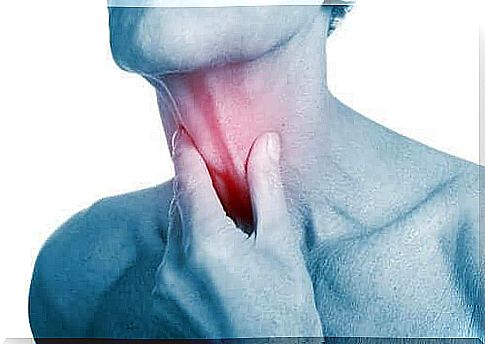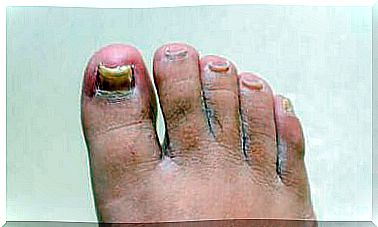All About Swallowing Disorders

Swallowing disorders are those that alter the passage of food from the mouth to the stomach. In reality, they are a set of several pathologies, very different from each other, whose common factor is their involvement in the swallowing process.
These disorders, in addition to having heterogeneous origins, can also present with varied symptoms. On some occasions, it is evident that there is difficulty in swallowing. However, at other times this situation is led by a series of complications resulting from the inability to eat properly, without the person who suffers being aware of having a problem with swallowing.
Unfortunately, swallowing disorders are quite common. They mainly affect elderly people and can lead to serious health problems such as malnutrition or dehydration. In this article, we’ll explain everything you need to know about them.
What does swallowing consist of?
Swallowing is a complex process that involves different muscles in the mouth and pharynx, larynx and esophagus. The goal is to move the food we eat from the mouth to the stomach and then digest it.
In addition to the muscles, different nerves participate in this process, allowing the movement of these muscles to be coordinated. Swallowing is divided into three phases: oral, pharyngeal and esophageal.
First, in the oral phase, food is chewed. This allows a bolus to form in the pharynx. Once there, the second phase begins.

In the pharyngeal phase, coordination between the muscles mentioned above is especially important. Through it, food is prevented from passing to the larynx, as this would cause respiratory problems or even suffocation. So far, swallowing is a voluntary act.
The action of the muscles causes the food bolus to reach the esophagus, after preventing it from crossing the airways or returning to the nose. Once in the esophageal phase, the bolus reaches the stomach thanks to peristalsis. It is a series of involuntary muscle contractions and relaxations that cause food to descend along the digestive tract.
What happens in swallowing disorders?
As already mentioned, swallowing disorders are a series of pathologies whose only common feature is that they affect this process. That is, they can have different origins and have different symptoms.
However, the majority of swallowing disorders cause dysphagia, which is difficulty swallowing. It is similar to the feeling that the food does not pass or stops somewhere in the neck. It is estimated that almost 15% of people over 50 years of age have dysphagia. Also, this is one of the main symptoms of a tumor in the esophagus or pharynx. Therefore, it is important for a doctor to study this situation correctly.
Swallowing disorders may occur with symptoms of nasal insufficiency or aspiration, such as coughing and choking. On some occasions, food that has just been eaten is immediately expelled.

What other symptoms do swallowing disorders cause?
Another sign that usually appears with these illnesses is pain when swallowing. The medical term used for this is odynophagia. It tends to appear when there is an injury to the pharynx or esophagus, and is common with certain infections.
However, it is important to know that not all swallowing disorders manifest themselves symptomatically. As we’ve already mentioned, sometimes the only change is the complications that come from altering this process.
Respiratory complications can occur, for example, when the bolus enters the respiratory system. This is associated with numerous infections, such as pneumonia, as the lungs are not prepared for this.
Another situation in which swallowing disorders do not produce the typical symptomatology is when they affect Parkinson’s patients, who have a particular involvement of the digestive system, in addition to not being able to express the symptom with complete clarity. They tend to suffer from malnutrition and dehydration because of this.
Conclusion
For any type of problem that affects the swallowing process, it is important to consult a doctor. The causes of these disorders are diverse and it is essential to establish a proper diagnosis.








